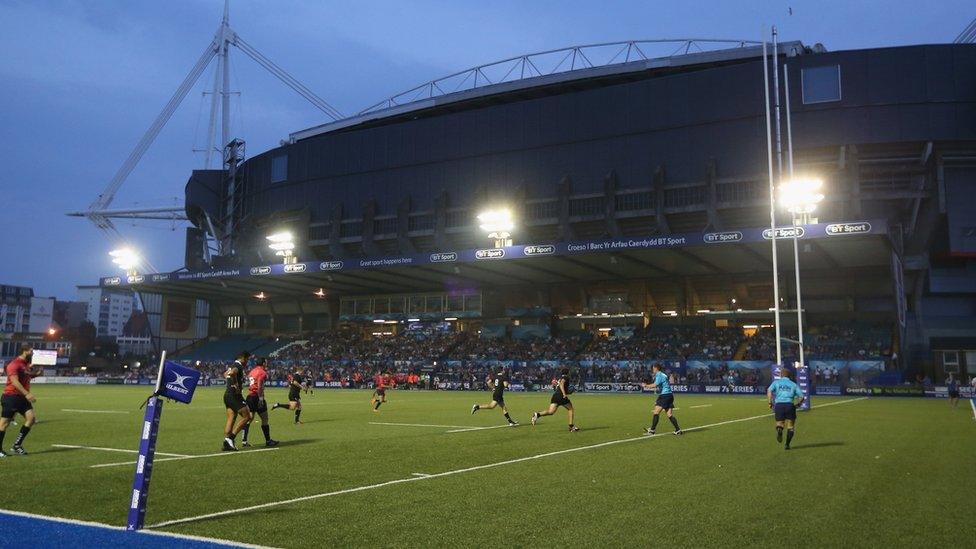Cardiff Central platform shortage travel chaos warning
- Published
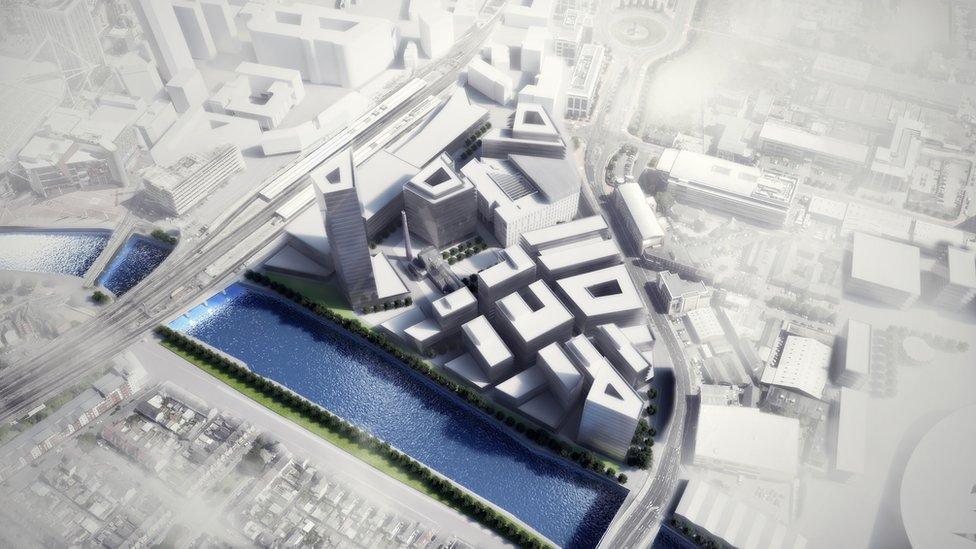
Could the Brains Brewery site hold the key to averting a transport crisis? The company plans to build offices, hotels and apartments and rename the site Central Quay
Cardiff Central railway station was built "for a different era" and will not be able to cope with a rise in commuters, a travel expert has warned.
About 265,000 people use it weekly, with developments like a new BBC building raising it to 475,000 by 2026.
Prof Stuart Cole believes new platforms are needed and could be built on the nearby Brains Brewery site.
Both Network Rail and Cardiff council said they were looking at ways to upgrade the transport system.
When Isambard Kingdom Brunel diverted the course of the River Taff in the 1840s to create the station on the old city walls, it was not meant to take centre stage like it is now.
It was designed predominantly for through-trains transporting coal plus a small number of passengers on the mainline to Swansea and to outlying villages such as Whitchurch and Radyr.
But things have changed - 13m people used the station in 2013, a figure expected to rise to 23m by 2023.
Increases will be exacerbated by the Central Square, Capital Quarter and Brains Brewery developments, while a new tax office for 4,000 employees has been mooted and redevelopment work on Cardiff Arms Park is also proposed.
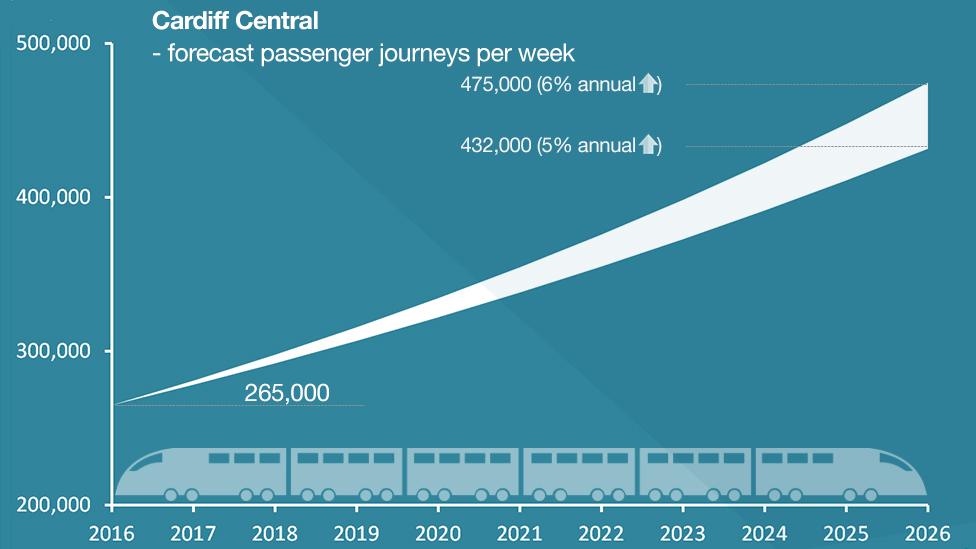
Network Rail said passenger numbers will continue rising by 5% to 6% annually over the next decade. But the pace of Cardiff's growth means it needs to keep updating its forecasts
The city is simply not prepared for it, because Wales traditionally is not a nation of rail users, according to Prof Cole from the University of South Wales.
He said valleys lines were mainly for coal transportation and it was only around 1900 when the industry began declining that Taff Valley Railway began seriously looking at other uses.
Despite this, cars remained the favoured transport method in the city into the 1990s, according to Prof Cole.
"Even when a franchise was awarded in 2003, no growth was built into it. It was in 2006 or 2007 that overcrowding became clear," he said.
"It was perhaps rising fuel costs, congestion, people wanting to do their bit for the environment. That's when it started going up and there was no plan for this.
"People in Cardiff are not used to being mass transited. They won't cwtch [cuddle] up with everyone like on the Piccadilly line at 8:30."
Part of the solution is using bigger trains - with Prof Cole giving an example of the impact of Intercity 125s, each capable of carrying 1,000 people, waiting to ferry the 45,000 rugby day crowds in a bid to keep queues to a minimum.
A proposed new electrified Metro system should also help with speed - currently, about six trains an hour go through Llandaf station, compared to about 11 on many London underground routes.
However, Prof Cole believes a bigger issue is getting rising numbers of passengers on to platforms safely.
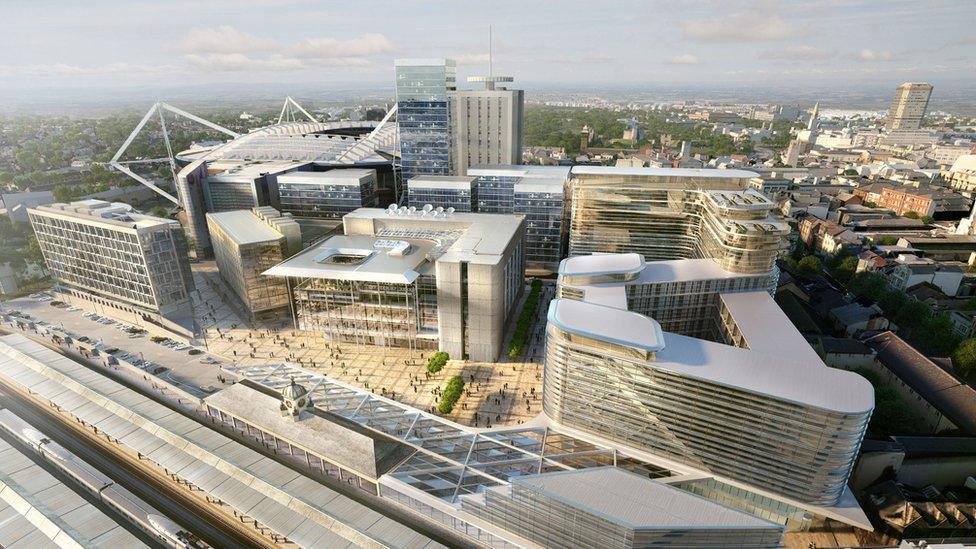
A new business district - Central Square - is being built directly outside Cardiff Central station
"It was never designed for mass transit. It's not a commuter railway station, so it's not even fair to say it's the contractor's fault," he said.
"It was built for a different era, for mainline trains and a few other local trains."
Prof Cole believes a new platform eight, opening in 2017, plus improved signalling will help.
But he claimed the area around the station had been developed with no overarching travel plan - saying a new bus station being built will be "world class" but "not big enough".
Employers will also have a big responsibility, with 4,000 tax office workers on flexi-time, for example, reducing rush hour pressures.
And while ambitious plans have been unveiled for redeveloping central station, Prof Cole said they do not address a major issue.
"Network Rail want a nice mall and frontage. It would be good, especially if it extended to the BBC building, as it would allow people to stand undercover after events," he said.
"It's very pretty, but the key thing is capacity - and new platforms are needed."
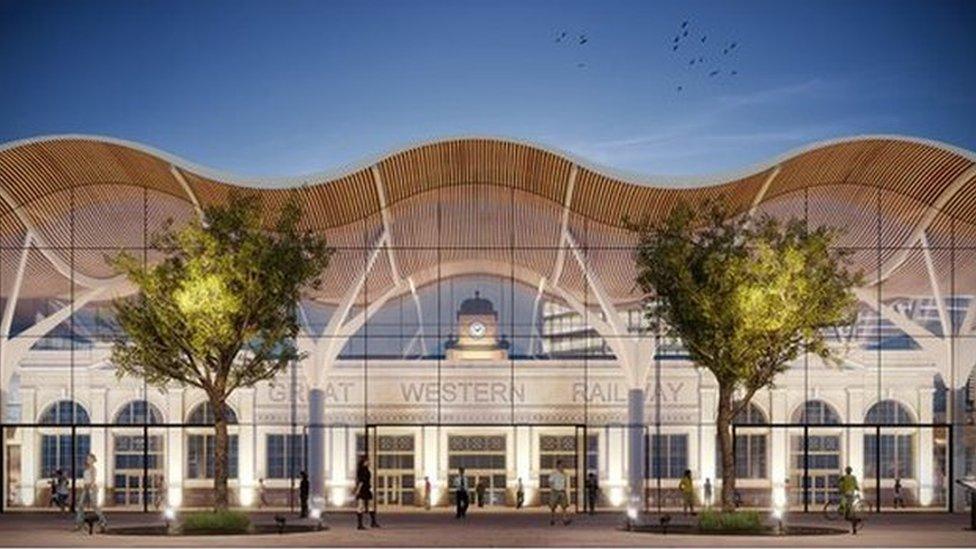
An artist's impression of how Cardiff Central station could look after redevelopment - while it is one of Network Rail's choices for work, it does not currently have funding
With little available land, Prof Cole believes a proposed redevelopment of the Brains Brewery site behind the station holds the key.
When negotiating planning permission, it is not unusual for developers to offer 10% of land value as a contribution to improvement schemes, called a Section 106 agreement.
Prof Cole said "there is a deal to be done" and if land was requested instead, new platforms could be built.
While SA Brain is still months away from submitting a planning application, could the idea be a possibility?
The proposal is a joint venture with Rightacres and its chief executive Paul McCarthy said: "The timing for bringing forward the Brain's site ties in perfectly with the Metro system delivery programme.
"Public transport is pivotal to the success of any business district and to have a Metro terminal at Central Quay, adjacent to the central train station, would be good for all concerned."
Cardiff council said it is "actively engaged" with Network Rail, the Welsh Government and developers to find ways to improve the station.
A spokesman said: "It's essential that the ongoing regeneration of Central Square is reinforced by the regeneration of central station and the leader of the city council continues to press the case for investment."

Prof Cole (centre) with commuters Gavin Davies and Andrew Jones, who travel to Cardiff city centre daily
Commuter Andrew Jones from Barry, Vale of Glamorgan, has already given up on the rail network.
"I could never get a seat on the train despite paying £20 a week," he said.
"It's easier to get here myself. I now bring my bike, which costs £15 a week and takes 15 minutes not 30."
One of Central Square's first tenant's - law firm Blake Morgan has moved in and employee Fiona MacDonald said the train from Lisvane and Thornhill is "fine" at 07:30 GMT.
However, this may not be the experience for commuters on the same line later in rush hour.
Gavin Davies, 31, who travels from Mountain Ash, said the journey is usually manageable, but adding Christmas shoppers into the mix has illustrated the pressures more people create.
"If you can't buy your ticket on the train, you buy it at central [station] to get through the barrier. But there was a queue from the one end right to the back," he said.
"I put it down to the time of year, but new developments won't help."
Tim James, Network Rail's head of strategy and planning in Wales, said work around the station is positive and co-ordinating activities will be "extremely important".
"We will need to refresh our [passenger] forecasts regularly to take into account any new developments in the immediate vicinity of the station," he added.
While admitting money is not currently available, Mr James said Cardiff council is helping it look at funding options for developing Cardiff Central.
He added: "We are particularly keen to leverage more commercial funding as a contribution towards delivering improvements for passengers and we are developing options to look at a range of possible solutions."
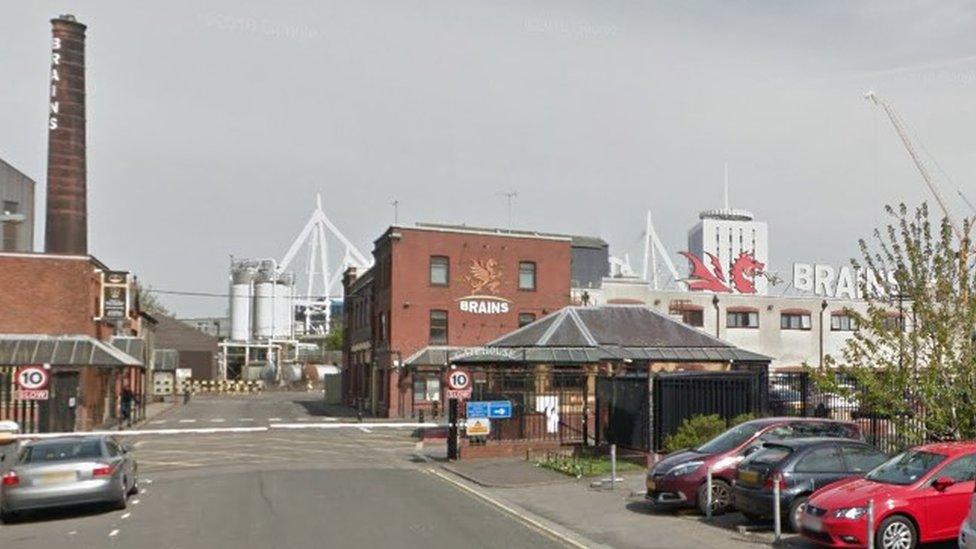
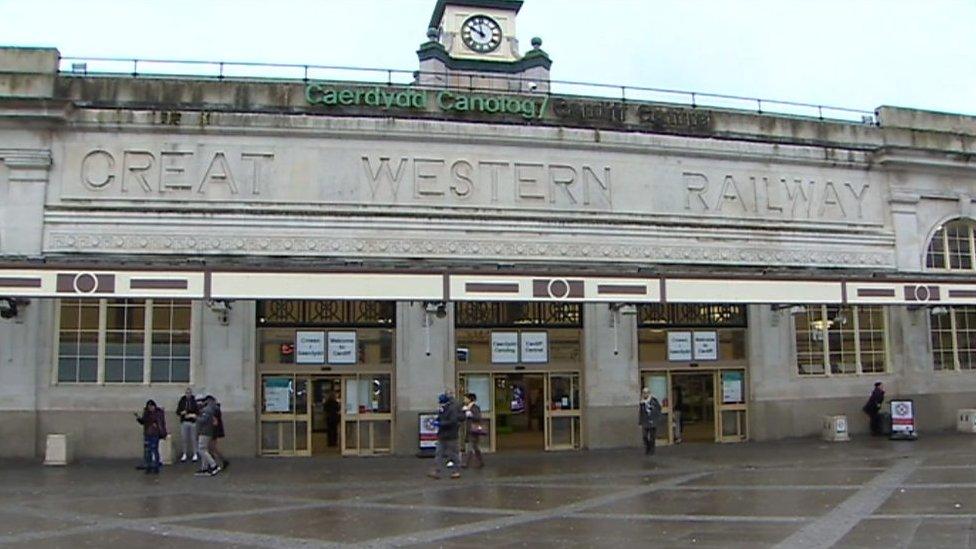
- Published24 December 2016
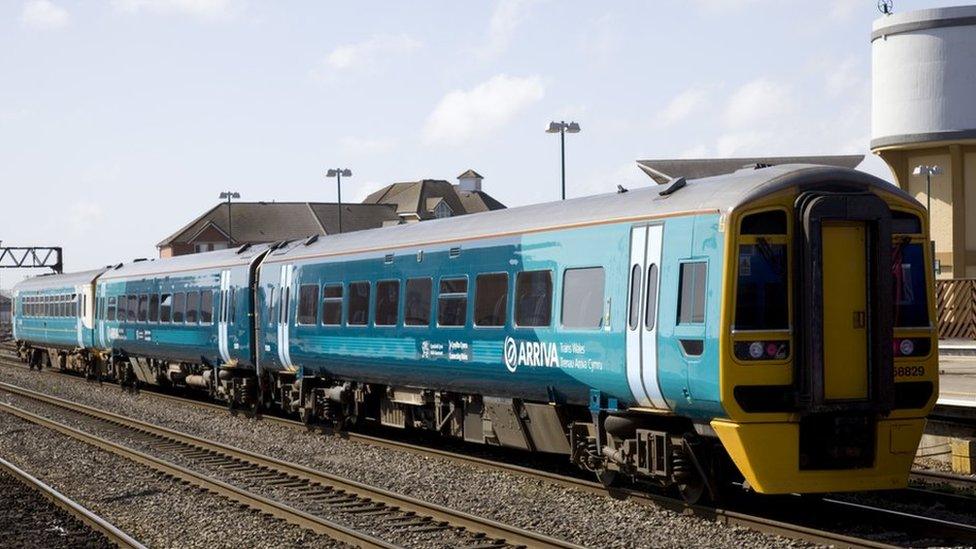
- Published5 September 2016
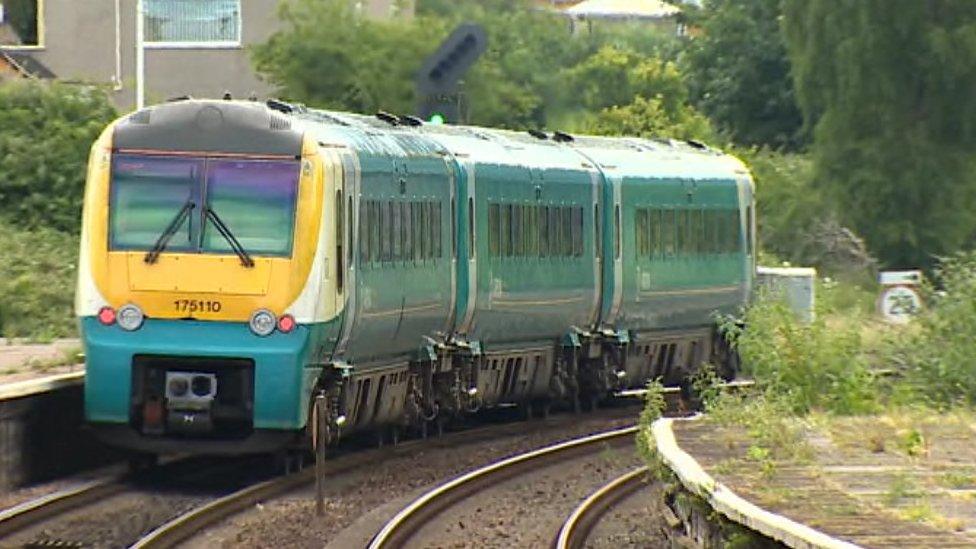
- Published4 March 2015
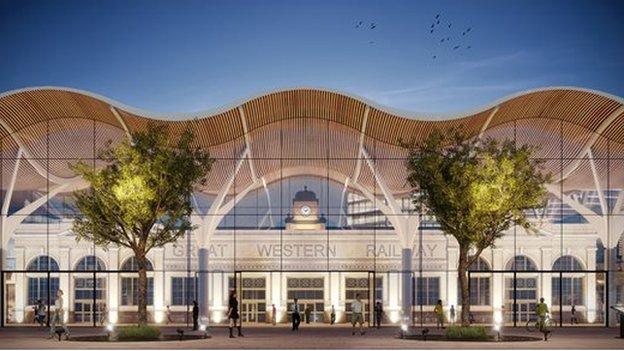
- Published22 November 2016
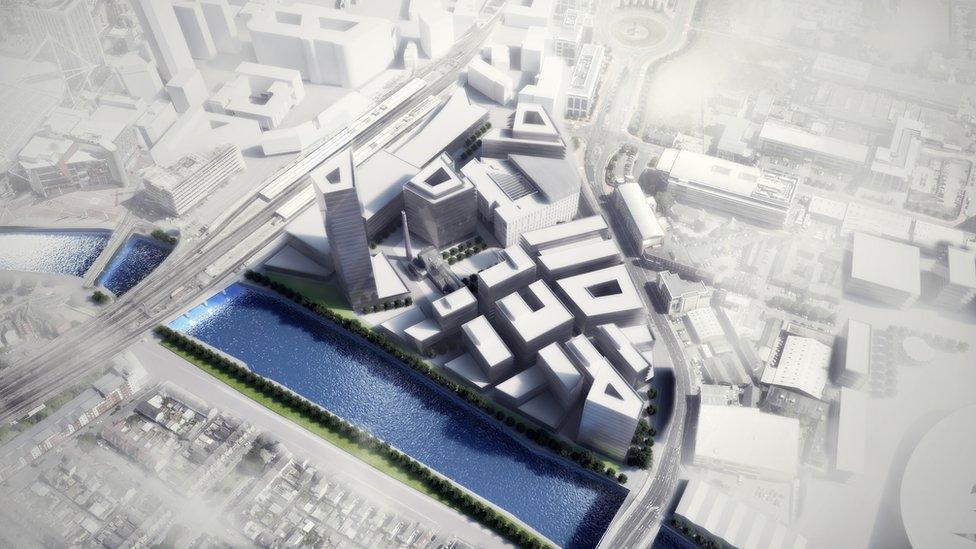
- Published26 November 2016
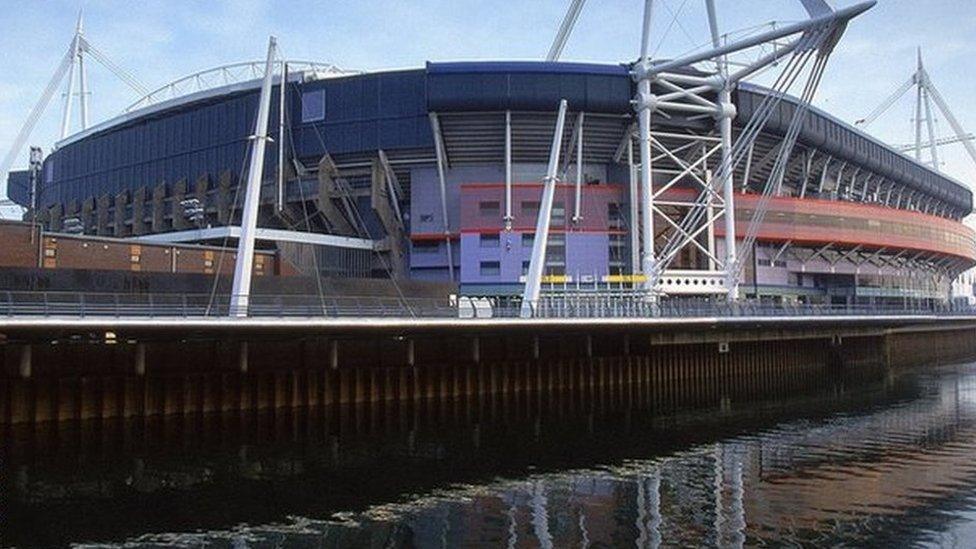
- Published17 November 2015

- Published16 December 2016
